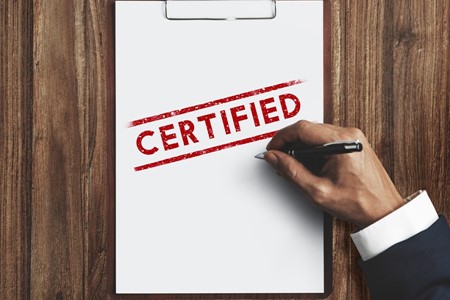
As global consumers become more conscious of the origins, ethics, and religious compliance of the products they use, certifications like Kosher have moved beyond the food industry and into sectors like pharmaceuticals, personal care, and chemicals. In the chemical manufacturing world, being Kosher certified is not just about meeting religious standards—it's also about trust, quality, and global market access.
What is a Kosher Certificate?
The word Kosher means “fit” or “proper” in Hebrew and refers to foods and products that comply with Jewish dietary laws, known as Kashrut. A Kosher
Certificate is an official document issued by a recognized Kosher certification agency that verifies a product, its ingredients, and the production process all meet Jewish dietary laws.
Kosher laws not only govern which ingredients can be used, but also how they are processed, cleaned, and handled. These laws apply not just to food, but also to chemicals used in food processing, pharmaceuticals, and cosmetics.
Why is Kosher Certification Important in the Chemical Industry?
1. Access to a Global Consumer Base
The demand for Kosher-certified products extends beyond the Jewish community. Many people see Kosher as a mark of cleanliness, traceability, and ethical sourcing. Having Kosher-certified chemicals enables manufacturers to sell to a broader audience and diverse industries.
2. Essential for Food, Pharma, and Personal Care Ingredients
Chemical ingredients used in food additives, excipients, emulsifiers, stabilizers, preservatives, and surfactants may come into contact with consumables or skin. Kosher certification ensures that these materials are free from non-compliant ingredients, such as animal by-products not processed according to Jewish law.
3. Clean Manufacturing and Handling
Kosher certification requires strict cleanliness and traceability standards in manufacturing. This attention to purity, segregation of materials, and equipment sanitation appeals to businesses seeking high-quality and contamination-free chemical inputs.
4. Regulatory and Industry Compliance
Many multinational companies and food producers require that all raw materials—including chemicals—be Kosher certified. Without Kosher certification, chemical manufacturers may miss out on major B2B supply contracts or fail to meet the compliance criteria of global clients.
5. Competitive Advantage
A Kosher certificate adds an additional layer of credibility to a chemical manufacturer. It signals that the company takes quality, traceability, and cultural sensitivities seriously—an increasingly valuable asset in competitive international markets.
What is the Certification Process?
-
Ingredient Review: The Kosher agency examines every raw material used.
-
Facility Inspection: Inspectors visit the production plant to check for cleanliness, segregation, and compliance with Kosher laws.
-
Ongoing Audits: Certified facilities are subject to periodic audits to ensure continued compliance.
-
Documentation: A Kosher certificate is issued for a specific product, valid for a defined period (often one year).
Conclusion
Kosher certification in the chemical industry is more than a religious label—it’s a global quality standard. Whether you're manufacturing excipients for pharma, additives for food, or ingredients for personal care products, Kosher compliance builds trust, meets international regulatory needs, and allows your products to reach a diverse, value-driven market.
Investing in Kosher certification can be a smart move toward ethical growth, better market positioning, and greater customer confidence in a competitive global landscape.